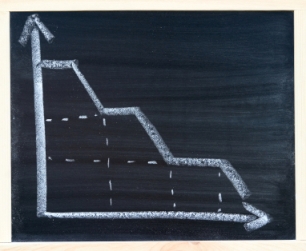 Jacob McArthur Mooney
Jacob McArthur Mooney
Jacob McArthur Mooney grew up in Nova Scotia and attended university in Newfoundland. He is now pursuing an MFA at the University of Guelph. His first book of poems, The New Layman’s Almanac, was recently published by McClelland & Stewart (see the Mindful Bard review here).
He edits the web journal ThievesJargon.com and is the founder of The Facebook Review.
Surprised by Poetry
I grew up in a tiny little town on the ocean, about 30 minutes south of Halifax, Nova Scotia. I liked to read. I didn’t write anything myself back then. My ?career? as a writer is pretty short. I started writing poems and plays my third year of college, when I was, say, 20. I’m 24 now. No one is more surprised to find me doing this than I am.
The birthplace of my writing is St. John’s, Newfoundland, where I went to college. Newfoundland is a wonderful place for arriving at language because language there is so idiosyncratic, so specific. And so confident in itself. I feel that the Maritimes are always fighting to normalize themselves with the rest of the country, to file down their sharper edges and to make themselves more Canadian. Newfoundland is disinterested in that abstract notion of a Canadian normalcy (and they’re right, as that notion doesn’t actually exist). Sometimes this cultural self-confidence melts into something uglier (xenophobia) but It’s so rare in our country that It’s still worth it.
On The New Layman’s Almanac
This collection precedes my MFA program. Some of the poems were already written by this time and submitted to literary journals under different names. Some weren’t. The structure of the book came into being just as I was leaving Newfoundland and developing an interest in the history of the publishing industry.
It was the self-starting trend in North American publishing that interested me?the history of micro-presses and house presses and the layman tendency, that very socialist idea of one non-expert giving his or her knowledge to another and trying to build expertise out of the social element of publishing. Of course, the modern equivalent is Wikipedia, to whom the book is dedicated.
Conditions of Creativity
I need comfort. I need to have my rent paid and my bills paid and some idea of where my next several meals are coming from. I write at night, mostly, though I’m not adverse to other times of the day. I don’t write well when I’m angry, or worried, or heartbroken, or frustrated, or jealous. I don’t write well under pressure to write.
Favourite Poets
The list is very Canadian, and very contemporary: Lorna Crozier; Karen Solie; Patrick Friesen; Leonard Cohen; Dennis Lee; and Kim Maltman. Don McKay is a big influence, though nobody believes me when I say that. Plus the usual suspects for someone of my age, race, and gender?Bukowski, Ginsberg, Rimbaud, Elliott Smith, Bob Dylan, The Television.
I read a lot, and I try to read widely, but it would be dishonest of me to not accept the impact on my writing that comes from the ?other? sources of input like TV, newspapers, popular music, and especially the Internet. These things, even if You’re not trying to open yourself to influence when interacting with them, are so prevalent that they affect your thought patterns, your ethics, your sense of timing and flow. And that affects how you write. Luckily, the majority of my readership is cursed by the same inputs, so in a way we are all speaking the same corrupted language, and it works.
Regeneration?
I don’t know if I need to be regenerated. Regeneration sounds to me like a sort of stepping back from the subject, a wiping clean and a starting over. The point of my writing, a lot of the time, is that it doesn’t want to do that. Regeneration is an excuse for blinking, It’s just another way of saying you need a breather from the intensity of life.
Burnout is something people warn me about, probably because I write a lot and I write quickly. I’m noticing that what I’ve been writing more recently is different from the stuff in Almanac, and I think it may have to do with lifestyle. I’m definitely a lot more clean-living now than when I wrote the poems in Almanac, by every definition of those words. Better-living, I think, too. I think that as long as I see a correlation between the quality of my work and the quality of my lifestyle, I’m going to try and maintain the latter in the interest of maintaining the former.
Social Concern
I don’t know how to write an apolitical poem, or story. What would that even sound like? A writer who says ?I’m not into politics? is deluding him- or herself. Everything about the literary experience is political. Writing is political because It’s inherently argumentative; you want to get somebody to see the world a different way.
And of course reading is political, both because we have incredible choice of what, if anything, we can read and because reading is so often a displayed action. We read in public, on the bus, at the beach. Can you imagine any more radical a political act in 2008 than sitting down at the head of your corporate boardroom and, while waiting for the meeting to start, casually thumbing yourself through the pages of the newest book of verse produced in your home country?
All that aside, I cringe at the expression socially conscious. When a piece of art is deemed socially conscious you can bet we’ve stopped caring about what it actually has to say and are applauding it for saying anything at all. Some of the most regressive, dehumanizing work of this century has gone without question because people, in their disinterest to deal with the ideas expressed, have simply labelled it socially conscious and moved on. Like ?socially conscious? is a genre, like horror or the epic. There’s a poem in Almanac that deals with all that.


